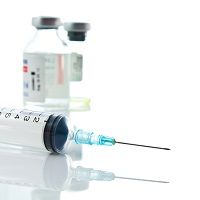Ebola Vaccine Trial Set for Liberia
As the effects of the recent Ebola outbreak are still being felt, researchers are continuing efforts to prevent or lessen future outbreaks.

As the effects of the recent Ebola outbreak are still being felt, researchers are continuing efforts to prevent or lessen future outbreaks.
According to a statement from the National Institutes of Health (NIH), a clinical trial will be held in Liberia involving two experimental vaccines. The trial will be open to volunteers in the country and is being run through a partnership between the US and the Liberian government. It is sponsored by the National Institute of Allergy and Infectious Diseases, which is part of the NIH.
The Partnership for Research on Ebola Vaccines in Liberia (PREVAIL), is a Phase 2/3 study and will include a pool of approximately 27000 men and women at least 18 years old or older.
According to the statement, the two drugs are cAd3-EBOZ and VZV-EBOV. The first drug “uses a chimpanzee-derived cold virus to deliver Ebola virus genetic material from the Zaire strain of virus causing the outbreak in Liberia.” The vaccine, which was developed by the NIAID and GlaxoSmithKline has already undergone a Phase 1 trial that “showed that it prompted immune responses to the outer coat of Ebola Virus.
The second vaccine in the study “employs vesicular stomatitis virus, an animal virus that primarily affects cattle, to carry an Ebola virus segment.” This vaccine was developed by the Public Health Agency of Canada and was licensed to NewLink Genetics Corporation-owned BioProtection Systems Corporation. While the results of that Phase 1 study have not been published they have been seen by the required regulatory entities.
“The scale of the current Ebola outbreak in West Africa is unprecedented, and specific medical countermeasures are needed for this and future outbreaks,” said Anthony S. Fauci, MD, director of the NIAID. “It is imperative that any potential countermeasures, including vaccines, be tested in a manner that conforms to the highest ethical and safety standards in clinical trials designed to provide a clear answer to the question of whether a candidate vaccine is safe and can prevent infection. This trial is designed to provide such answers.”
Part of the study will also include other high risk candidates, including healthcare workers, people in towns where transmission is still active, contact tracers, and people working on burial teams. Work has already started in Montserrado County, where the Liberian capital of Monrovia is located.
As part of the study, one group will receive a placebo injection of saline while two other groups will be assigned one of the vaccines. It will be a double-blind study and all participants “will be advised on how to minimize the risk of becoming infected with Ebola virus and will be contacted by study staff about one week after the injection and then monthly for the duration of the study,” the statement noted. It is expected the study will last approximately 12 months.